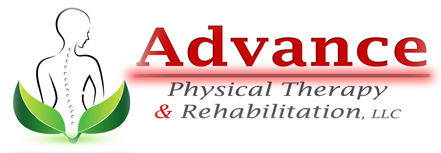
Lumbar Herniated Disc
What is lumbar herniated disk?
A herniated disk is a condition in which the soft inner section of one of the disks in your spine pushes out through the hard outer section. A herniated disk can pinch the spinal nerve as it passes through your spine, which can result in pain, numbness, or tingling. When this condition occurs in your neck, it is called a cervical herniated disk, and when it occurs in your back, it is called a lumbar herniated disk. While a herniated disk is usually quite painful, sometimes it doesn’t present any symptoms whatsoever.
What causes lumbar herniated disk?
This condition usually occurs in older people. Over time, the disks between the vertebrae in your spine lose their water content, which reduces their structural integrity. This process is called disk degeneration, and it can make it so that your spinal disks can rupture from sudden twisting your spine or heavy strain to your low back with lifting, carrying, pulling and pushing. In most cases, herniated disks occur while lifting heavy objects. Repetitive activities with poor body mechanics and posture can cause the disk to herniate, as well as sports related injuries.
What are the symptoms of a lumbar herniated disk?
Symptoms depend on the severity of the herniation. If the disc is not pressing on the nerve, there might not be any pain or slight low back pain. However, if the disc is pressing on the nerve, symptoms may include tingling, pins and needles, numbness in one leg, beginning in the buttock or back of the knee and traveling into the thigh, ankle or foot. Pain can also travel from the buttock straight down the leg into the ankle or foot. Associated muscle pain and spasm can occur with weakness in the muscles of the affected leg. Daily activities such as moving around in bed, getting up from a chair, sitting, walking, stair climbing can become a problem.
How is lumbar herniated disk diagnosed?
In most cases, a physical exam and a review of your medical history are all that is needed to diagnose you with a herniated disk. In the course of your physical exam, your doctor will check your back for any tender areas, and they may also ask you to lie down and hold your legs in various positions. In rare instances, imaging tests may also be ordered as part of the diagnosis process.
How is lumbar herniated disk treated?
Herniated disks usually resolve themselves within a few weeks. However, physical therapy may also be called for if your symptoms don’t resolve within the expected time window. At Advance Physical Therapy & Rehabilitation our experienced therapists use treatments which include electric stimulation, cryo therapy, manual therapy, massage, stretching, core stabilization exercises, postural correction techniques, spinal decompression, proper body mechanics and ergonomics training to restore our patients back to pain free living.


